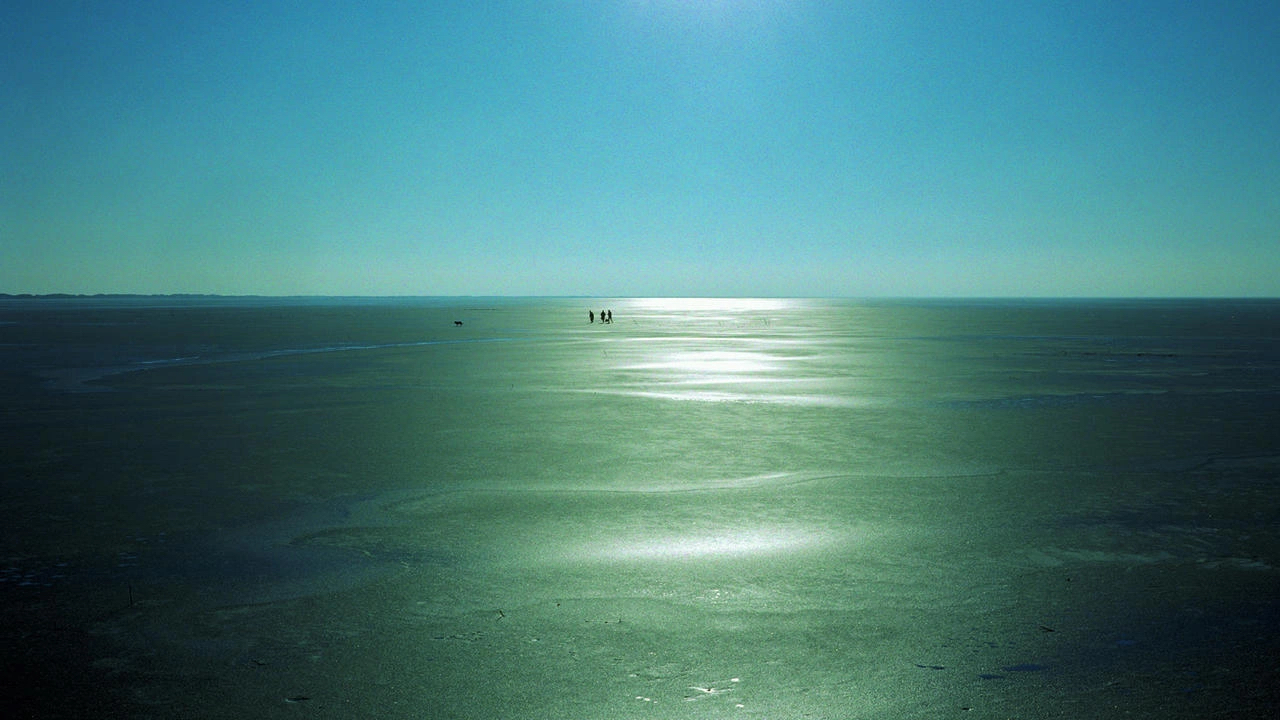On Ruins, Debris, and Ghosts
The Temporality of Disaster in the Film “Aral, Fishing in the Invisible Sea”
DOI:
https://doi.org/10.17892/app.2023.00017.334Keywords:
imperial ghosts, Aral Sea disaster, environmental degradation, Soviet colonialism, post-socialist temporality, imperial formation, hauntology, ecocriticismAbstract
In this article, I will investigate the temporality of disaster by focusing on environmental degradation as represented in the film Aral, Fishing in the Invisible Sea (Saodat Ismailova and Carlos Casas, 2004, Uzbekistan). The film investigates the consequences of the Aral Sea disappearing due to a failed Soviet irrigation project by following the lives of the three generations of Uzbek fishermen whose economic survival is under threat. Drawing on the idea that the empire is a “haunting structure” (del Pilar Blanco and Peeren 2013), the article considers the cinematic image of the Aral Sea disaster as a “theoretical object” (Bal 2015: 133) that allows investigation of the damaged relationship between local dwellers and the surrounding material environment. Drawing on Derrida's idea of “hauntology” (Derrida 2006), the article unveils the complex assemblage of ghosts and stories that shape the Aral Sea landscape, impacted simultaneously by past colonial ambitions of altering nature, the failed imaginations of the socialist industrial future, and contemporary global capitalism. Crucially, the figure of the Aral Sea disaster exposes the peculiar role of socialist modernity within the general project of western modernity. Soviet ideology pushed the Western idea of progress to the limits, creating a socialist subject obsessed with the future. Therefore, a post-socialist subject moves "against the flow of time" and "enters the present [the neoliberal modernity] from the future" (Groys 2018: 201). As a result, the dried-up sea, which is also a border between two states (Uzbekistan and Kazakhstan), becomes an image of the uncertain life between the past and future. Ultimately, I will demonstrate how the ambiguous temporality of the disaster transforms a cinematic landscape into the battlefield between the temporal layers, opening up the possibility of reinventing attachments to the land that has been damaged.

Downloads
Published
How to Cite
Issue
Section
License
Copyright (c) 2023 Apparatus. Film, Media and Digital Cultures of Central and Eastern Europe

This work is licensed under a Creative Commons Attribution 4.0 International License.
The articles in Apparatus are published under https://creativecommons.org/licenses/by/4.0/ This license does not apply to the media referenced, which are subject to the individual rights owner's terms.
The authors hold the copyright without restrictions and retain publishing rights without restrictions.





